Ispaghol in Urdu: Complete Guide to اسپغول for Pakistani Households
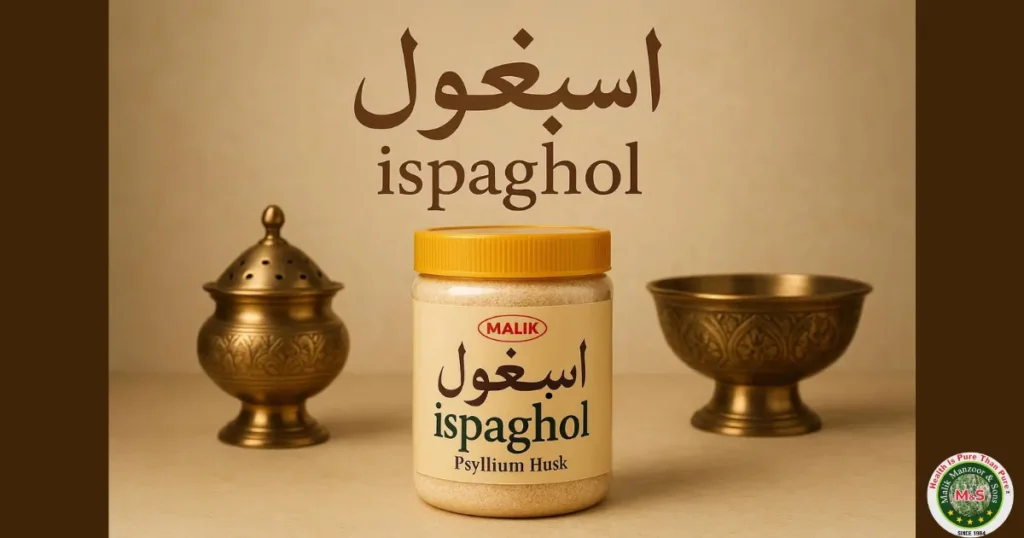
When I stand in my Pakistani fields watching the ispaghol crop sway gently in the breeze, I’m reminded that this isn’t just agriculture – it’s a connection to centuries of wellness wisdom. For over two decades, I’ve been cultivating what Urdu speakers call اسپغول (ispaghol) – a fiber supplement that has been a trusted household remedy across Pakistan and India for generations.
Whether you’re searching for “ispaghol in urdu,” trying to understand what ispaghol ka chilka means, or want to learn about this traditional remedy, you’ve come to the right place. Today, I’ll share everything about ispaghol from an authentic Pakistani perspective – bridging our traditional Urdu medicine wisdom with modern scientific understanding.
What is Ispaghol in Urdu? Understanding اسپغول
Ispaghol in Urdu is written as اسپغول and pronounced “is-pag-hol.” This word originates from Persian, where “asp” (اسپ) means horse and “ghol” (غول) means ear – referring to the shape of the seeds that resemble a horse’s ear. In Urdu-speaking regions of Pakistan, you’ll also hear it called “isabgol” or sometimes “ispaghula.”.
The complete Urdu term ispaghol ka chilka literally translates to “ispaghol’s husk” or “ispaghol’s chaff.” This refers specifically to the outer coating of the tiny seeds – the part we harvest and process for its incredible health benefits.
In English, ispaghol Urdu is known as know is called “psyllium husk” or “psyllium fiber.” The scientific name is Plantago ovata. So when someone asks about the English of isabgol, the answer is “psyllium husk” – though I find the Urdu name carries more cultural weight and history.
Every Pakistani household recognizes اسپغول as that go-to remedy grandmothers recommend for constipation, digestive cleansing, and overall gut health. It’s been part of our wellness traditions for centuries, passed down through generations with trusted recipes and usage methods.
The Meaning and Cultural Significance of Ispaghol Urdu.
Understanding the ispaghol meaning in English is more than just translation – it’s about appreciating the cultural context. In Pakistani and Indian households, اسپغول represents natural, gentle healing that works with your body rather than forcing it.
Traditional Urdu medicine systems – particularly Unani and Ayurvedic practices widely followed in Pakistan – classify ispaghol as having cooling properties. It’s considered excellent for balancing stomach heat and providing relief without harsh side effects.
The word اسپغول itself carries trust. When a Pakistani doctor or hakim prescribes ispaghol, patients know exactly what to buy. When families discuss home remedies for digestive issues, اسپغول inevitably comes up. This cultural recognition matters – it means generations of safe, effective use.
In my travels across Pakistan, from Karachi to Lahore to Peshawar, I’ve found that ispaghol in urdu contexts is understood universally. Every medical store, every pansari shop, every pharmacy immediately knows what you need when you ask for اسپغول.
Traditional Uses of Ispaghol in Pakistani Households.
Let me share how Urdu-speaking families have traditionally used اسپغول, based on practices I’ve observed and experienced throughout Pakistan:
For Constipation – Qabz:
This is the most common traditional use. Mix 1-2 teaspoons of اسپغول in a glass of warm milk before bedtime. By morning, you’ll experience comfortable bowel movements. This remedy has been passed down through generations in Pakistani families.
For Stomach Heat – Pet Ki Garmi:
During hot summer months, traditional Urdu medicine recommends mixing ispaghol with cold milk or yogurt to cool internal heat. Many Pakistanis swear by this cooling effect, especially in the scorching months.
For Weight Loss – Wazan Kam Karna:
Long before modern weight loss science, Urdu-speaking communities knew that taking اسپغول before meals helps control appetite. The fiber creates a feeling of fullness, naturally reducing how much you eat.
For Hemorrhoids – Bawaseer:
Traditional hakims recommend ispaghol urdu preparations with cold milk at night for piles treatment. The soft stool it produces eliminates straining, allowing healing.
For Diabetes:
Pakistani practitioners observed that اسپغول helps manage blood sugar when taken with meals. Modern science has now confirmed this traditional wisdom.
For Healthy Skin:
Some traditional beauty treatments use اسپغول externally. Mixed with rose water, it creates a face mask that many believe promotes glowing skin.

Health Benefits Validated by Modern Science.
While traditional Urdu medicine recognized ispaghol’s benefits intuitively, modern research has now scientifically validated many of these uses. Here’s what studies confirm:
Digestive Health:
The soluble fiber in اسپغول forms a gel that normalizes stool consistency. It helps with both constipation and diarrhea – something traditional Pakistani medicine has known for centuries. The fiber adds bulk while maintaining softness, making bowel movements comfortable.
Cholesterol Control:
Clinical studies show that daily ispaghol intake can reduce LDL (bad cholesterol) by 5-10%. The fiber binds to bile acids, forcing your liver to use cholesterol to produce more bile. This naturally lowers overall cholesterol levels – exactly what Urdu medicine practitioners claimed.
Heart Health:
Beyond cholesterol, اسپغول helps reduce blood pressure and inflammation markers. Major health organizations now recognize psyllium’s cardiovascular benefits, validating what Pakistani traditional medicine understood intuitively.
Diabetes Management:
Ispaghol urdu preparations slow sugar absorption into the bloodstream, preventing dangerous spikes after meals. This makes it valuable for managing diabetes – a benefit recognized in traditional practice and now confirmed by research.
Weight Management:
When taken before meals, اسپغول expands in your stomach and signals fullness to your brain. This natural appetite suppression helps with weight loss without harsh stimulants or chemicals.
Gut Microbiome Support:
Modern research reveals that ispaghol acts as a prebiotic, feeding beneficial bacteria in your intestines. These bacteria produce compounds that support overall digestive health and immune function – adding a new dimension to اسپغول’s traditional benefits.
How to Use Ispaghol: Traditional and Modern Methods.
For those wanting to use اسپغول properly, here’s comprehensive guidance combining traditional Urdu medicine practices with modern understanding:
Basic Preparation:
- Quantity: Start with 1 teaspoon – approximately 5 grams.
- Liquid: Mix with at least 8 ounces of water, milk, or juice.
- Mixing: Stir thoroughly for 10-15 seconds.
- Timing: Drink immediately before it gels.
- Follow-up: Drink another full glass of water right after.
Traditional Pakistani Recipes:
Ispaghol aur Doodh:
Mix 1 teaspoon اسپغول in a glass of warm milk with a little sugar. Drink before bed. This is the classic Pakistani remedy for constipation.
Ispaghol aur Dahi:
Combine 1 teaspoon ispaghol with fresh yogurt and a pinch of salt. Perfect for summer – cooling and digestive.
Ispaghol aur Lemon:
Mix اسپغول with warm water, lemon juice, and honey. Great for morning cleansing and weight management.
Ispaghol Face Mask:
For external use: mix ispaghol powder with rose water to create a paste. Apply to the face for skin benefits – a traditional beauty treatment.
Ispaghol aur Chaach:
Mix with chilled buttermilk and cumin powder. A refreshing summer drink that aids digestion.
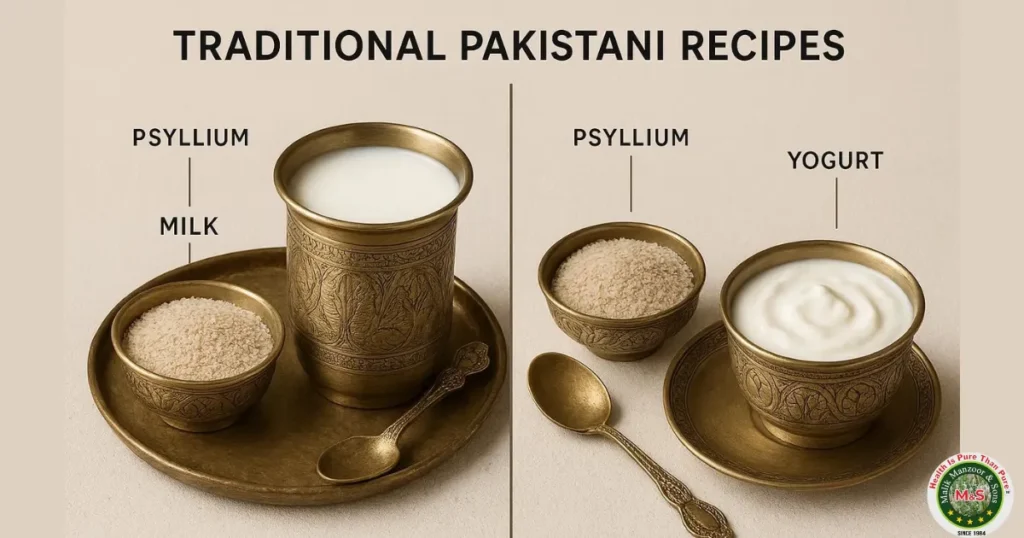
Timing Recommendations:
- For Qabz: Night before sleeping.
- For Cholesterol: With meals.
- For Wazan: 20-30 minutes before meals.
- For Ziabetes: With meals.
Critical Safety Rules:
- Never eat dry: Always mix with liquid first.
- Hydration is essential: Drink 8-10 glasses of water daily.
- Start slowly: Begin with half a teaspoon.
- Space from medications: Take 2-4 hours apart from medicines.

Side Effects and Precautions.
While ispaghol in urdu medicine is considered very safe, understanding potential side effects helps you use it properly:
Common Side Effects:
Gas and Bloating:
Initially, you might experience gas or bloating. This usually resolves within a week as your system adjusts.
Cramping:
If taken without enough water, you might get stomach cramps.
Allergic Reactions:
Rare but possible – symptoms include itching, rashes, or breathing difficulties.
Who Should Be Cautious:
- People with (difficulty swallowing).
- Those with a history of (intestinal blockage).
- Anyone with a known allergy to ispaghol.
Medication Interactions:
This is crucial: اسپغول can reduce the absorption of certain medicines. Always maintain 2-4 hour spacing from:
- Diabetes medications.
- Heart medications.
- Thyroid medications.
For Pregnant Women (حاملہ خواتین): Generally safe during pregnancy, often recommended for pregnancy-related issues. However, always consult your doctor before starting any supplement during pregnancy.
Buying Quality Ispaghol in Pakistan.
For Urdu speakers shopping in Pakistan, here’s how to ensure you’re getting quality اسپغول:
Where to Buy:
- Medical stores/pharmacies.
- Pansari shops.
- Supermarkets.
- Online retailers.
- Direct from Malik Psyllium.
Quality Indicators:
Color:
Light beige to nearly white. Dark brown suggests contamination or poor quality.
Texture:
Fine and uniform powder. A gritty or grainy texture indicates incomplete processing.
Swelling Test:
Mix one teaspoon in water. Good اسپغول should absorb 10-14 times its weight and form a clear gel quickly.
Smell:
Nearly odorless. Any foul smell indicates spoilage or improper storage.
Price:
Very cheap اسپغول is suspicious. Quality processing has costs. In Pakistan, expect to pay PKR 1,000 per 250 grams for pure ispaghol.
Packaging:
Professional packaging with clear labels, batch numbers, and expiration dates.
Signs of Adulteration:
- Black spots indicate seed material mixed in.
- Poor swelling capacity.
- Unusual color or texture.
- Gritty residue when mixed with water.
At Malik Psyllium, we test every batch for purity, heavy metals, and microbial safety to ensure our customers – whether they call it اسپغول or psyllium – receive the finest quality.
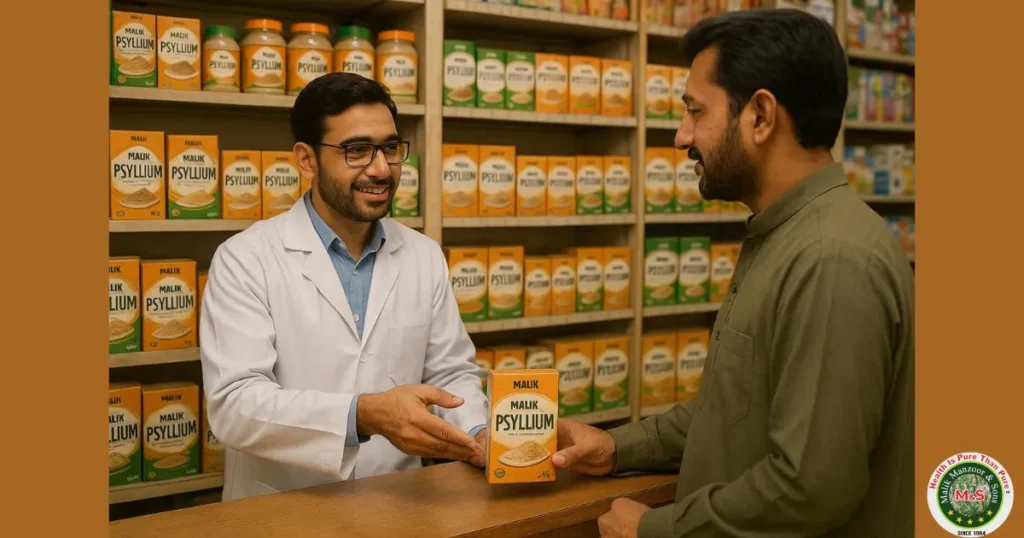
Ispaghol Cultivation in Pakistan.
Understanding where your اسپغول comes from adds appreciation for this traditional remedy. Let me share insights about ispaghol urdu cultivation in Pakistan:
Major Growing Regions:
Pakistan’s primary ispaghol producing areas include:
- Sindh Province: Mirpur Khas, Sanghar, Tharparkar Districts.
- Punjab Province: Bahawalpur, Rahim Yar Khan Areas.
These regions provide ideal conditions:
- Sandy soil.
- Semi-arid climate.
- Cool winters.
- Warm springs.
Cultivation Timeline:
- Sowing: October-November.
- Growth Period: 120-130 days.
- Harvesting: February-March.
Pakistani farmers have refined اسپغول cultivation over generations. The traditional knowledge combined with modern techniques produces world-class quality that’s exported globally.

Pakistan’s Global Role:
Pakistan is one of the world’s largest producers of psyllium husk. We export اسپغول to over 80 countries. When someone buys “psyllium husk” in America, Europe, or the Middle East, there’s a high probability it came from Pakistani fields like mine.
This makes me proud – our traditional crop, known as اسپغول in urdu, serves global wellness needs while remaining a staple in Pakistani households.
Ispaghol in Pakistani Culture and Daily Life.
The cultural significance of ispaghol urdu communities can not be overstated. It’s woven into our daily wellness practices:
Home Remedies:
Every Pakistani grandmother has her special اسپغول recipe. These remedies, passed through generations, represent collective wisdom about digestive health and natural healing.
During Ramadan:
Many Muslims use اسپغول during the holy month to manage digestive adjustments from fasting. Taking it at sehri or iftar helps maintain comfort throughout the day.
At Weddings:
Pakistani wedding feasts are famously rich. Thoughtful hosts sometimes offer اسپغول afterward to guests for digestive support – a considerate cultural practice.
In Medical Traditions:
Both Unani and Ayurvedic medicine – widely practiced across Pakistan – recognize ispaghol as a cooling and gentle remedy. Traditional hakims prescribe اسپغول for various conditions, and their recommendations align closely with modern research.
Language and Identity:
The word اسپغول itself represents cultural identity. When Urdu speakers use this term, they’re connecting to wellness traditions that predate modern medicine. This linguistic and cultural continuity matters – it’s not just about health, but about maintaining connections to our heritage.
Modern Research Validates Traditional Wisdom.
What’s remarkable about ispaghol in urdu medicine is how well traditional uses align with modern scientific findings. International research has validated what Pakistani and Indian traditional practitioners knew for centuries:
Clinical Studies: Thousands of research papers confirm اسپغول benefits for:
- Heart disease prevention.
- Diabetes management.
- Obesity treatment.
- Inflammatory bowel conditions.
- Cholesterol reduction.
Medical Recognition: Major global health organizations now recommend psyllium:
- American Heart Association.
- International Diabetes Federation.
- European medical associations.
This scientific validation of traditional Urdu medicine practices shows our ancestors were remarkably sophisticated in their understanding of natural remedies. The اسپغول they recommended wasn’t just folklore – it was effective medicine.
What is the English name for ispaghol?
Ispaghol in Urdu (اسپغول) is called “psyllium husk” or “psyllium” in English. The scientific name is Plantago ovata. So the English of isabgol is psyllium – they’re the exact same product, just different names in different languages. When shopping internationally, look for “psyllium husk” to find ispaghol.
Is it safe to take ispaghol daily?
Yes, ispaghol urdu medicine considers safe for daily long-term use when taken with adequate water. Many people use (daily) for years without problems. However, drinking enough water is essential – at least 8-10 glasses daily. Also, maintain 2-4 hour spacing from medications.
How long does ispaghol take to work?
For constipation, most people see results within 12-72 hours after the first dose. For cholesterol and diabetes control, consistent use for 4-8 weeks shows measurable improvements. For weight loss, results appear gradually over several weeks when combined with proper diet and exercise.
What’s the difference between ispaghol and isabgol?
There is no difference – ispaghol and isabgol are simply different spellings and pronunciations of the same Urdu word. Both refer to the identical product from Plantago ovata. Regional pronunciation varies across Pakistan and India, but the product remains the same. Some people also say “ispaghula.”.
Can pregnant women take ispaghol?
Generally, yes – isbagol is considered safe during pregnancy and is often recommended for pregnancy-related constipation. However, pregnant women should always consult their doctor before starting any supplement. Start with small doses and ensure adequate water intake.
At what age can children take ispaghol?
Children aged 6-12 can safely take ispaghol in smaller doses than adults. Start with 1/4 teaspoon mixed in plenty of liquid. Children under 6 should only take ispaghol under pediatrician guidance. Always supervise children to ensure they drink enough water with it.
What is the price of ispaghol in Pakistan?
Ispaghol Urdu market prices vary by quality and brand. In Pakistan, pure ispaghol chilka typically costs PKR 1,000 per 250 grams, depending on quality. Premium brands like Malik Psyllium may cost more but ensure the highest quality, purity, and safety standards.
Does ispaghol help with weight loss?
Yes, isbagol supports weight management by creating lasting fullness. Take it 20-30 minutes before meals with plenty of water. It helps control appetite naturally. However, it’s not magic – combine ispaghol with a healthy diet and exercise for the best results.
Conclusion: Honoring Tradition, Embracing Science.
Understanding ispaghol in Urdu – both the language and the cultural context – reveals why this simple fiber has remained a trusted remedy for centuries across Pakistan and India. Whether you call it Ispaghol in Urdu, Isabgol in Hindi, or know it by its English name psyllium, you’re talking about a natural wellness solution that bridges traditional wisdom with modern science.
After over two decades of cultivating Plantago ovata in Pakistan’s prime growing regions, I’ve witnessed how this humble plant supports health across cultures and generations. The traditional Urdu recipes our grandmothers shared weren’t just folk remedies – they were sophisticated therapeutic applications now validated by international research.
At Malik Psyllium, we’re proud to continue Pakistan’s Isbagol tradition while meeting global quality standards. Our product serves both domestic markets where customers ask for “Ispaghol Chilka” and international markets seeking “premium psyllium husk” – but our commitment to purity and effectiveness remains constant.
Whether you’re seeking relief from qabz, cholesterol control, weight management, or overall digestive health, I invite you to experience the quality ispaghol that generations of Urdu-speaking families have trusted. Visit our website to discover premium organic products that honor tradition while embracing modern excellence – because your health deserves the best of both worlds.
Malik Shabbir
Featured Blogs
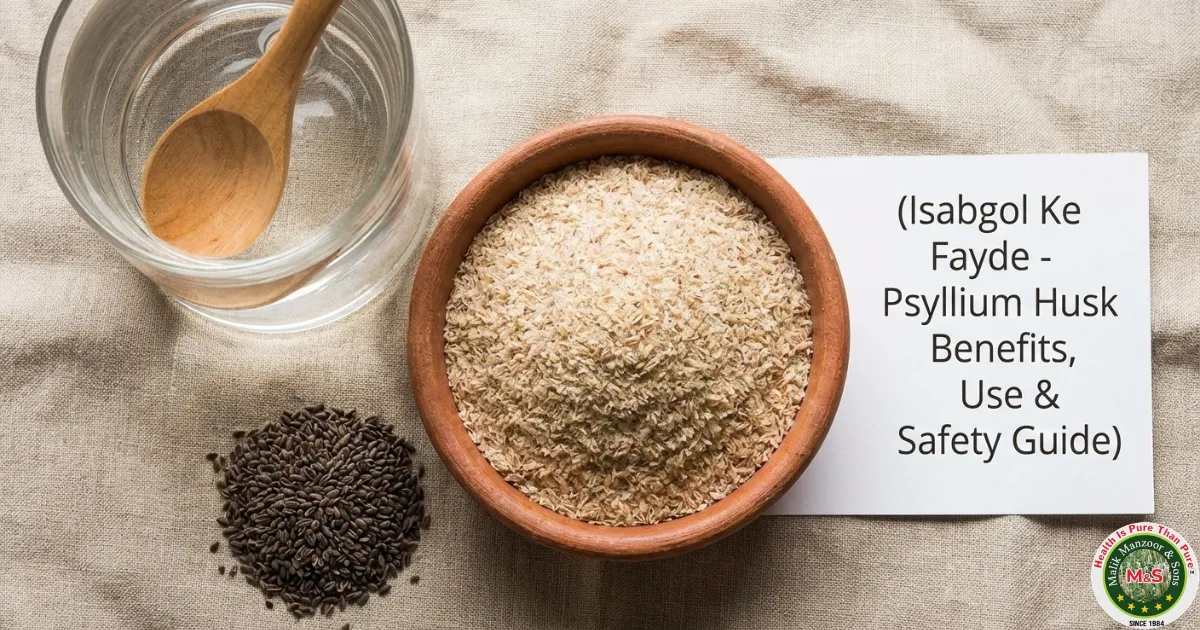
Isabgol Ke Fayde – Psyllium Husk Ke Poori Science-Based Rahnumayi – 2026
Isabgol ke fayde jaanna aaj ke daur mein zyada zaroori
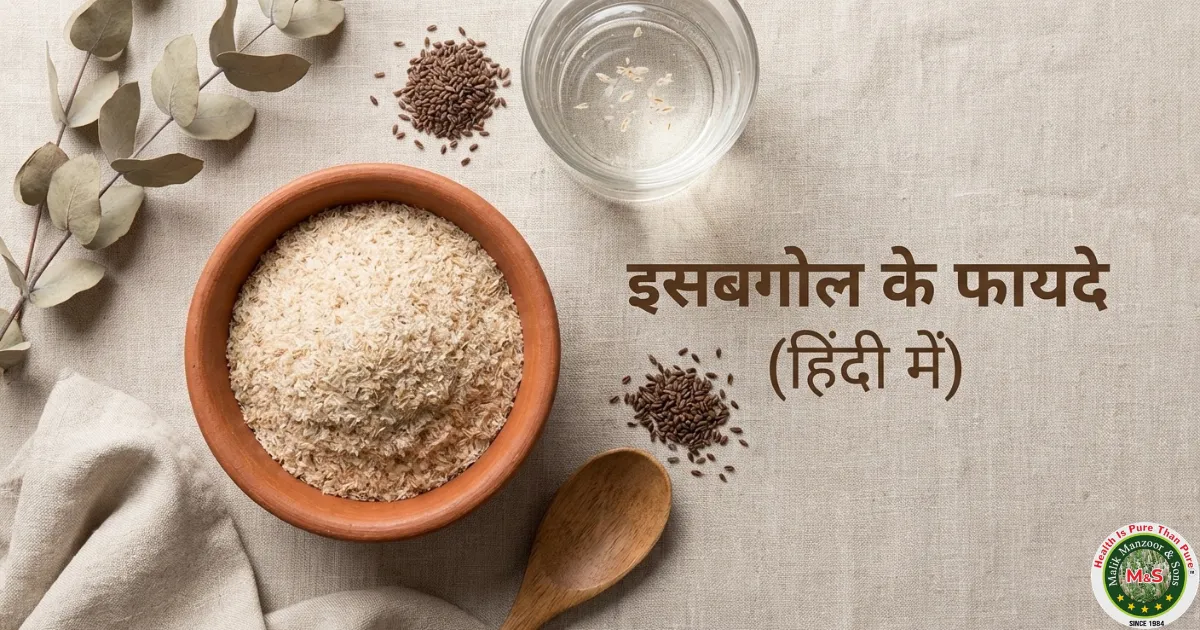
Isabgol Benefits in Hindi | Psyllium Husk Ke Fayde, Sahi Upyog Aur Savdhaniyan – 2026
Agar aap isabgol benefits in hindi mein samajhna chahte hain,
